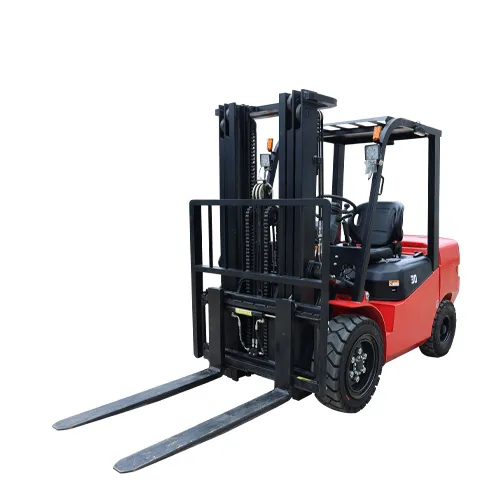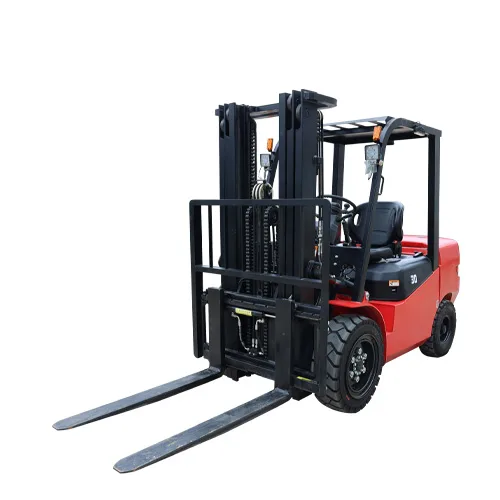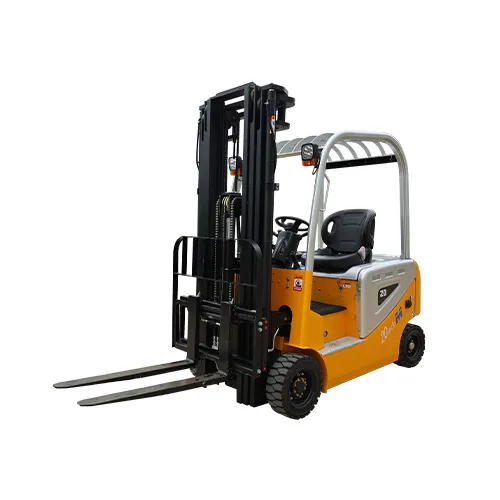-
Lydia@kinglandmachinery.com
-
+86-537-6593739

Is a Diesel Forklift the Best Choice for You?
This comprehensive guide aims to explore the ins and outs of diesel forklifts, helping you make an informed decision.
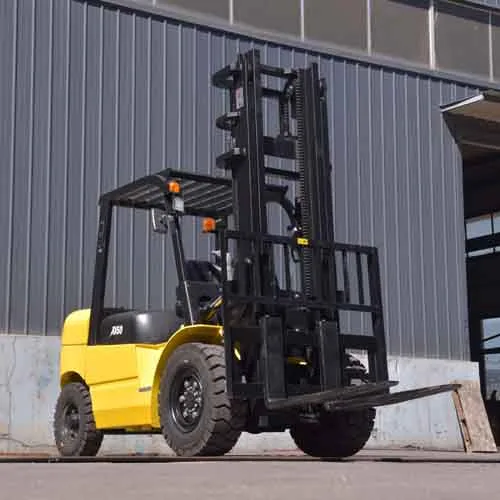
Welcome to My Blog!
Before we dive into the content, I’d love for you to join me on my social media platforms where I share more insights, engage with the community, and post updates. Here’s how you can connect with me:
Facebook:https://www.facebook.com/profile.php?id=100092064188332
Now, let’s get started on our journey together. I hope you find the content here insightful, engaging, and valuable.
Table of Contents
Introduction
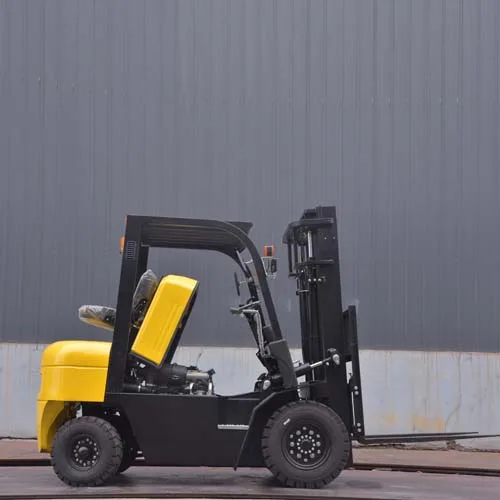
As a leading supplier of material handling equipment, we often encounter clients seeking the most efficient and cost-effective solutions for their operations. One of the most debated topics is the choice between different types of forklifts, particularly the diesel forklift. Known for its power and durability, the forklift (diesel) has been a staple in various industries. But is it the best choice for your specific needs? This comprehensive guide aims to explore the ins and outs of diesel forklifts, helping you make an informed decision.
What is a Diesel Forklift?
A forklift (diesel) is a type of internal combustion forklift powered by diesel fuel. It is designed to handle heavy loads and operate efficiently in outdoor environments. Diesel forklifts are known for their high torque, making them suitable for demanding tasks in industries such as construction, manufacturing, and logistics.
Advantages of Diesel Forklifts
High Power and Performance
Diesel forklifts are renowned for their robust power output. They can handle heavier loads compared to electric or propane forklifts, making them ideal for heavy-duty applications. The high torque provided by diesel engines ensures efficient operation even on rough terrains.
Fuel Efficiency and Long Runtime
Diesel fuel has a higher energy density than other fuels, allowing forklift (diesel) to operate longer on a single tank. This translates to fewer refueling stops and increased productivity.
Durability and Longevity
Diesel forklifts are built to withstand harsh working conditions. Their engines are designed for longevity, often outlasting other types of forklifts with proper maintenance.
Quick Refueling
Unlike electric forklifts that require hours to recharge, forklift (diesel) can be refueled quickly, minimizing downtime and keeping operations running smoothly.
Versatility
Diesel forklifts are versatile machines capable of operating in various environments, including outdoor and semi-indoor settings. Their ability to perform well in adverse weather and on rugged terrain makes them a valuable asset in many industries.
Disadvantages of Diesel Forklifts
Emissions and Environmental Impact
Diesel engines emit pollutants such as carbon monoxide, nitrogen oxides, and particulate matter. These emissions can contribute to air pollution and pose health risks, especially in indoor environments.
Noise Pollution
Diesel forklifts are generally noisier than their electric counterparts. In workplaces where noise levels need to be minimized, this can be a significant drawback.
Higher Initial Costs
The upfront cost of purchasing a forklift (diesel) can be higher than that of an electric model. However, this can be offset by their durability and lower long-term operating costs.
Maintenance Requirements
Diesel engines require regular maintenance, including oil changes and filter replacements. Neglecting upkeep can lead to costly repairs over time.
Limited Indoor Use
Due to their emissions and noise, forklift (diesel) are less suitable for indoor environments. They are best suited for outdoor or well-ventilated settings.
Applications of Diesel Forklift
Diesel forklifts are commonly used in industries that require heavy lifting and outdoor operations. Some typical applications include:
- Construction Sites: Handling heavy materials and equipment
- Manufacturing Plants: Transporting large components
- Logistics and Warehousing: Loading and unloading heavy goods
- Agriculture: Moving heavy loads across rough terrains
Diesel Forklift Specifications Table
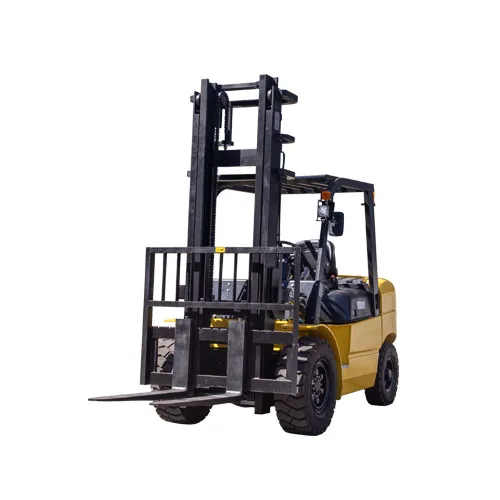
| Specification | Description |
|---|---|
| Power Source | Diesel Fuel |
| Load Capacity | Up to 50,000 lbs |
| Operating Environment | Outdoor and Well-Ventilated Indoor Areas |
| Refueling Time | Approximately 5–10 minutes |
| Maintenance Frequency | Regular (Oil changes, filter replacements) |
| Emissions | High (Requires proper ventilation) |
| Noise Level | High (May require hearing protection) |
Comparing Diesel Forklift to Other Types
Diesel vs. Electric Forklifts
- Power: Diesel forklifts offer higher torque, making them suitable for heavier loads.
- Emissions: Electric forklifts produce zero emissions, ideal for indoor use.
- Operating Costs: Forklift (diesel) have lower initial costs but higher fuel expenses.
- Maintenance: Electric forklifts require less maintenance due to fewer moving parts.
Diesel vs. Propane Forklifts
- Power: Both offer similar power, but diesel has a slight edge in torque.
- Emissions: Propane forklifts emit fewer pollutants, making them more suitable for indoor use.
- Fuel Availability: Diesel fuel is more widely available in remote areas.
- Operating Costs: Propane forklifts may have higher fuel costs compared to diesel.
Environmental Considerations
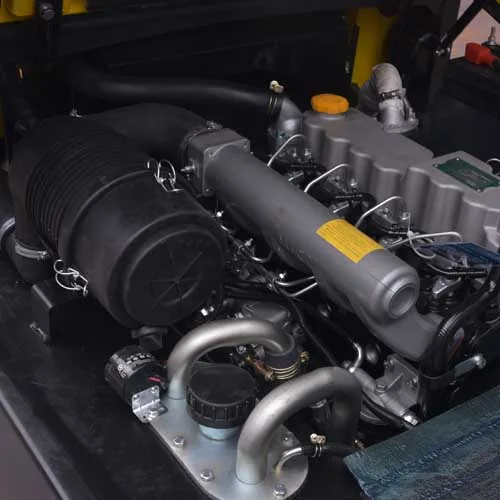
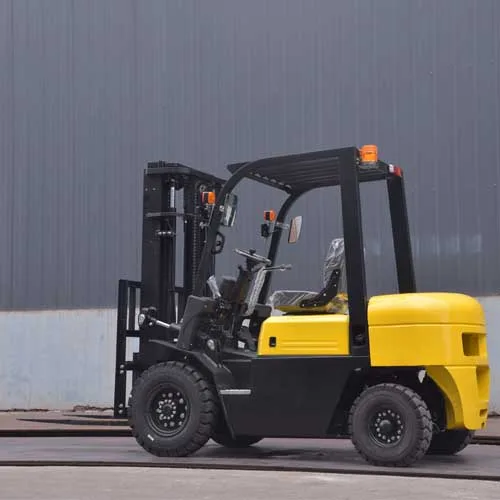
With increasing environmental regulations, it’s essential to consider the ecological impact of forklift (diesel). Modern diesel engines are equipped with advanced filtration systems to reduce emissions. However, they still produce more pollutants than electric or propane models. If your operations are primarily indoors or in areas with strict environmental regulations, alternative fuel forklifts may be more appropriate.
Conclusion
Diesel forklift offer unmatched power and durability, making them ideal for heavy-duty, outdoor applications. However, their emissions and noise levels limit their suitability for indoor use. When choosing a forklift, consider your specific operational needs, environmental regulations, and long-term operating costs.
If you’re looking for a reliable and powerful material handling solution, a forklift (diesel) might be the perfect fit for your business. For more information or to explore our range of diesel forklifts, contact us today.
FAQ
Can diesel forklift be used indoors?
While they can be used in well-ventilated indoor areas, forklift (diesel) are generally not recommended for indoor use due to emissions and noise levels.
How often do forklift (diesel) require maintenance?
Regular maintenance is essential, including oil changes and filter replacements. The frequency depends on usage but typically occurs every 250–500 operating hours.
Are forklift (diesel) more expensive than electric ones?
The initial purchase price of forklift (diesel) can be higher, but they often have lower long-term operating costs due to fuel efficiency and durability.
What is the typical lifespan of a forklift (diesel)?
With proper maintenance, forklift (diesel) can last up to 20,000 operating hours or more.
Do forklift (diesel) require special fuel storage?
Yes, diesel fuel should be stored in compliance with local regulations, often requiring specific containers and storage conditions.

